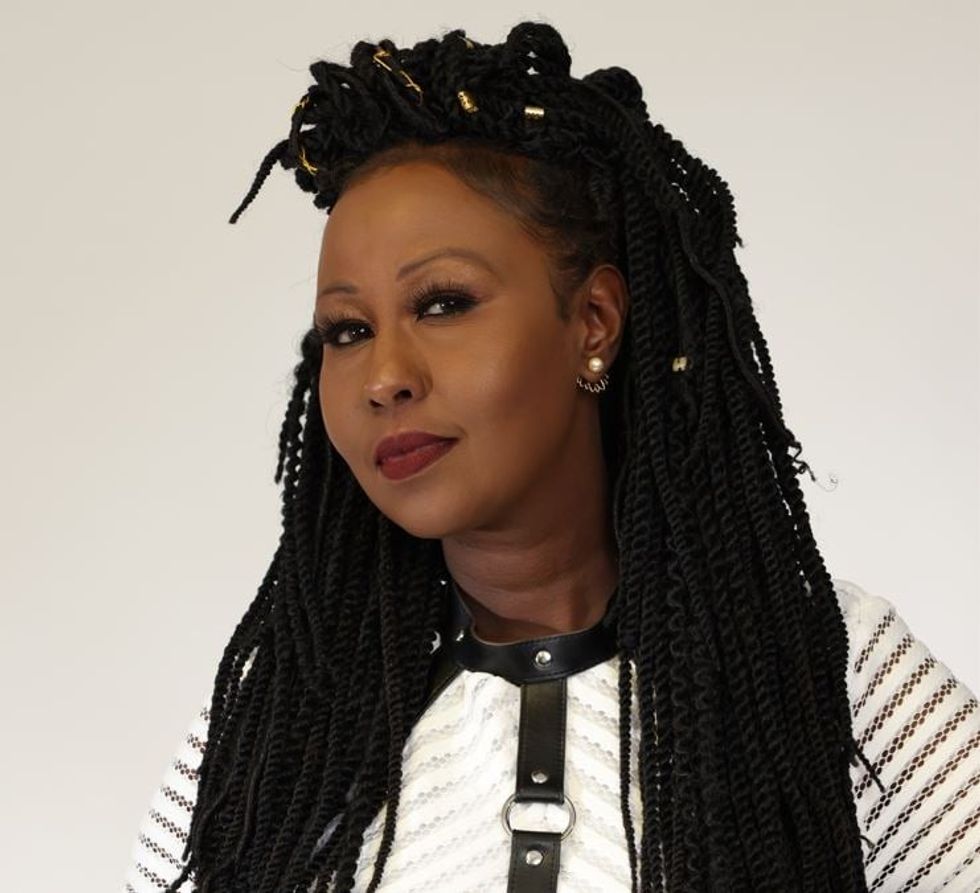THE potential for early menopause is just one of the many significant health complications experienced by women subjected to female genital mutilation/cutting (FGM/C) and other forms of gender-based violence, the founder of a UK charity has said.
Sema Gornall is the CEO of The Vavengers, a charity committed to ending FGM/C and other forms of violence against women and girls.
She said healthcare professionals should try to “ask the right questions” to better identify FGM survivors and record their associated experiences.
“Only by gathering more accurate data can we paint the real picture of the impact on FGM survivors and in turn, ensure they are given the vital support and help they need,” Gornall told Eastern Eye.
Last year, the Study of Women’s Health Across the Nation (SWAN) revealed that black women can experience the menopause differently to their white peers, with it even starting earlier.
Findings also showed that black women spend more time experiencing the menopause transition than white women. Symptoms such as hot flushes and night sweats were reported more often by black women.
According to Gornall, though the study was focused on the US, the findings of the report echo much of what The Vavengers and its partner organisations such as Waltham Forest Women’s Network have seen through their work in the UK.
“We work with women and girls of all races, ages and backgrounds. Based on our data, for example, I can confidently say that women are facing between three to six forms of gender-based violence at the same time. So obviously, that has a really big emotional impact,” she said.
“We work with so many British Asian communities, refugees and asylum seekers. They all experience common problems. They decline to talk about domestic violence or any health care or wellness-related concerns, because when women talk, they are subjected to a few forms of other gender-based violence.”
Gornall also pointed out that domestic violence contributes to healthcare issues for women, including early menopause.
“Many black and minority women are quite unwell, generally, mainly because of domestic violence. It is a major contributing factor for ailments. Wellness is really important in women’s health. And we believe – especially in the Asian communities we work with – that there’s a massive silencing of women. They are being threatened not to speak up, and all of these contribute to their poor heath,” she added.

Hoda Ali, the Somali British co-founder of The Vavengers, who also experienced FGM, said, “We are living in one of the richest countries in the world, but sadly, minority women’s and girls’ health experiences aren’t prioritised.
“I want proper care and support for women like me. It’s also important to listen and provide holistic care for all.”
Ali said she was diagnosed with premature menopause due to complications caused by FGM.
“I wasn’t ready. As a black woman, I wasn’t educated about menopause and what it does to women’s bodies, especially premature menopause.
“When I was diagnosed, I was a young woman. The menopause slowed me down and caused emotional damage. I felt I lost my body, and it stopped me in my tracks. I’m now trying to unpause my life by educating myself about early onset menopause with limited information out there.
“I saw the specialist menopause clinic only once in five years. My appointments were cancelled one after the other, and no one prioritised my healthcare needs.
“As a black woman who is also a survivor of FGM, I feel like I am just a number and I do not matter. What I’m sad about is most women and girls don’t have the platform and the voice I have.”
The Vavengers has helped more than 1,000 women and girls through its community out-reach hubs in the UK. The centres support the physical, psychological, and legal needs of vulnerable women and girls, with a focus on FGM/C and violence against women and girls (VAWG).
The charity organises educational workshops about FGM/C and VAWG with businesses and organisations, including healthcare professionals. It also runs national and international campaigns to ensure FGM/C and VAWG are on the political and social agenda.
Sahrish Iftikhar, a development worker with Waltham Forest Women’s Network, said: “We often came across many women while working in the community who continuously had the same issues and concerns when it came to their health,bodies and menopause.
“They found their GPs were not much help, and this was a universal issue for women with little to no barriers when it comes to health literacy and those who faced many barriers.
“We collaborated to start a women’s health and menopause cafe to give women from all walks of life a safe space to share their stories and concerns, gain insight and find a support group. At our sessions, we have various experts who share knowledge and tips on weight, nutrition, exercise and much more.
“We have grown our sessions in the past year, and although we are based in Waltham Forest, we often have many women from all over London attend, as there seems to be an immense need for support for women, specifically those who may be pre-menopausal or going through menopause.
“Unfortunately, one of the main common factors we have found is that there is no real support for them out there. They want more health literacy and support and as a network, we are grateful to be able to provide that.”



















